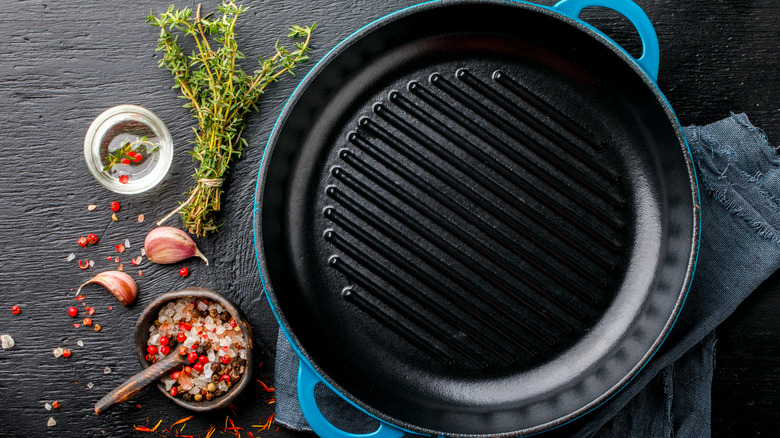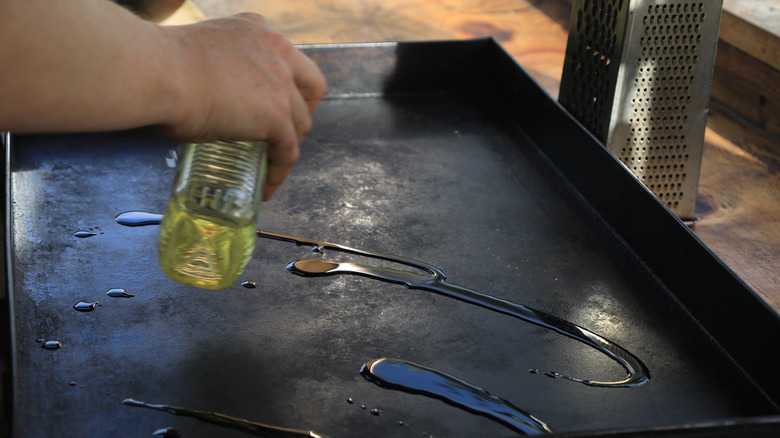Why You Should Use Flaxseed Oil To Season Your Griddle
The large flat top of the griddle is truly a beautiful sight to see and typically an even more beautiful scent to smell once it's going. Breakfast foods, hamburgers, you name it; they can be made delicious by a chef and their griddle. You can tell a lot about an artisan by the way they handle and treat their trusty tools, and flaxseed oil is the best way to pamper your griddle.
Just like with cast iron skillets, griddles need to be seasoned to keep them functioning properly. Seasoning doesn't mean literally putting various spices on the skillet but rather using certain oils to create a seal around the material to preserve the quality of the iron and keep its non-stick qualities, per MasterClass. Just coat the cast iron griddle in a thin layer of flaxseed oil and put it into the oven to seal the grease to the iron.
What makes flaxseed oil so great?
This process of cooking the oil into the griddle is called polymerization, and it works better with certain kinds of oil than with others. According to Foods Guy, the layer of grease on your cast iron will impart some subtle flavors onto your food, so you want to ensure that you use a neutral oil without any strong flavors. The oil must also have a high smoke point (the temperature at which it starts to ignite and burn) so that you don't get any hazards in your kitchen or burnt food on your griddle.
Flaxseed oil fits these criteria to a dime. With a smoke point of 225°F and a very neural palate, it is perfect for seasoning cast iron skillets. Other oils that fit the benchmark (and can even give flaxseed oil a run for its money) are avocado, grapeseed, and canola oil. When seasoning, make sure to avoid animal fats like bacon grease and dairy fats like butter, as these can go rancid if left to sit for too long; better to just stick with flaxseed oil.

